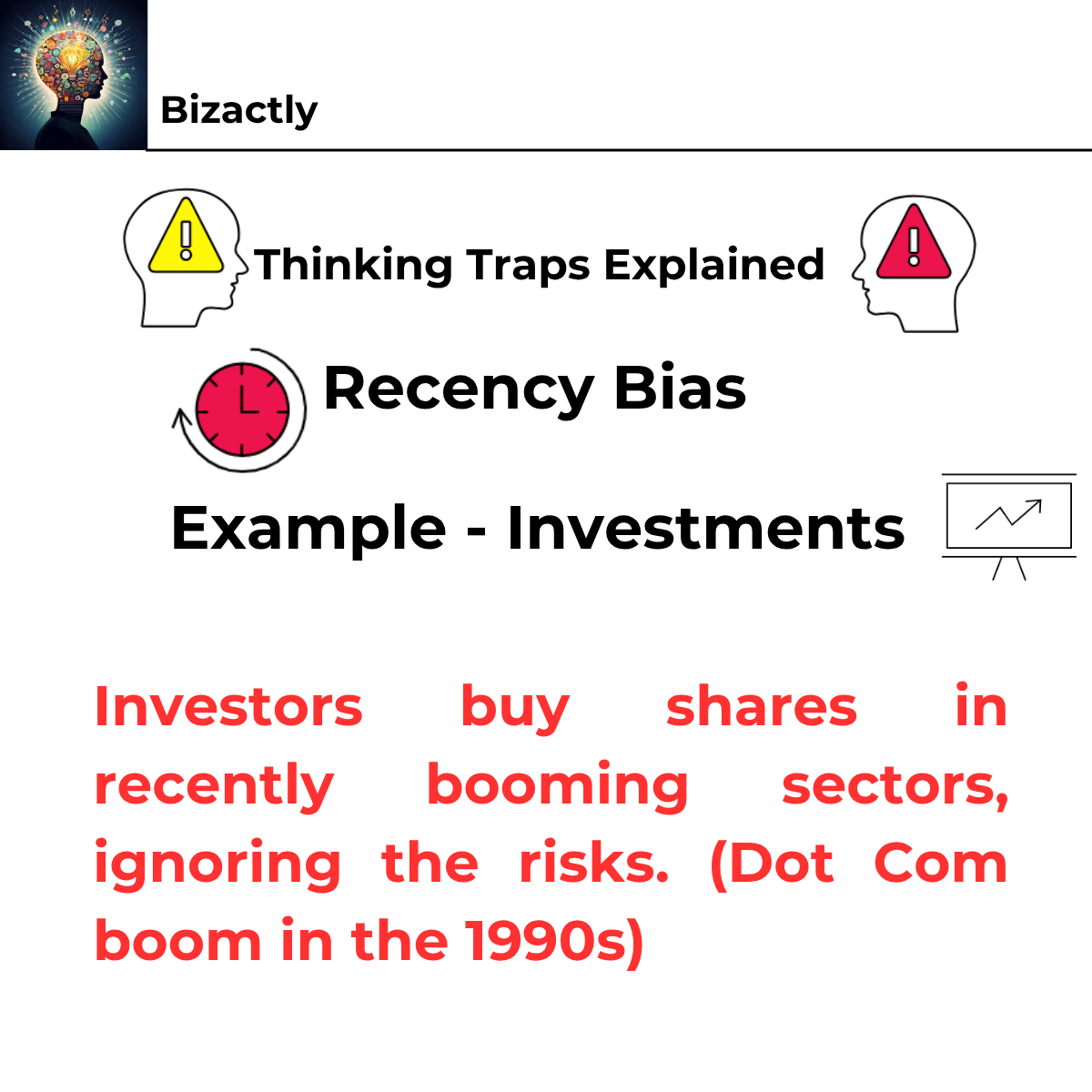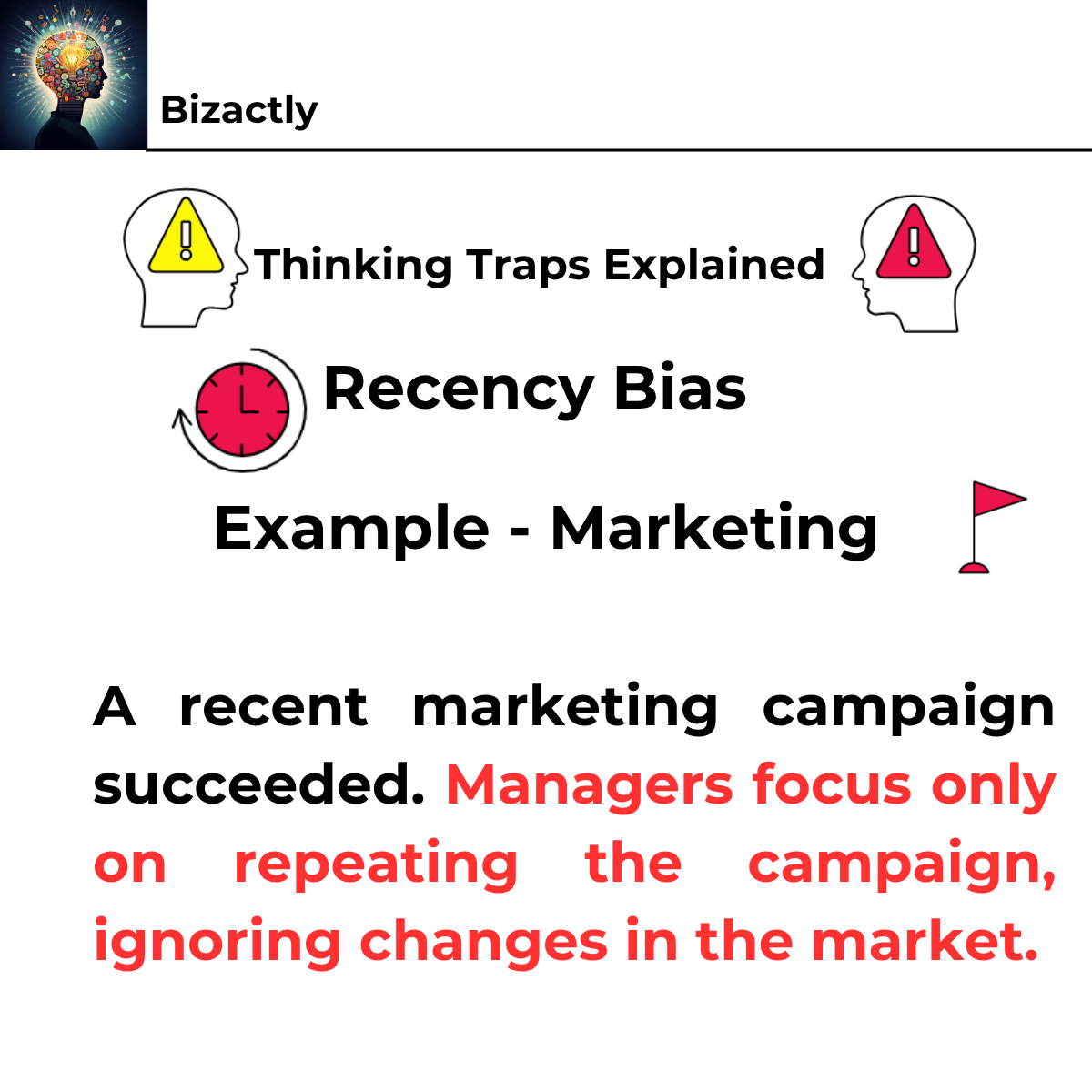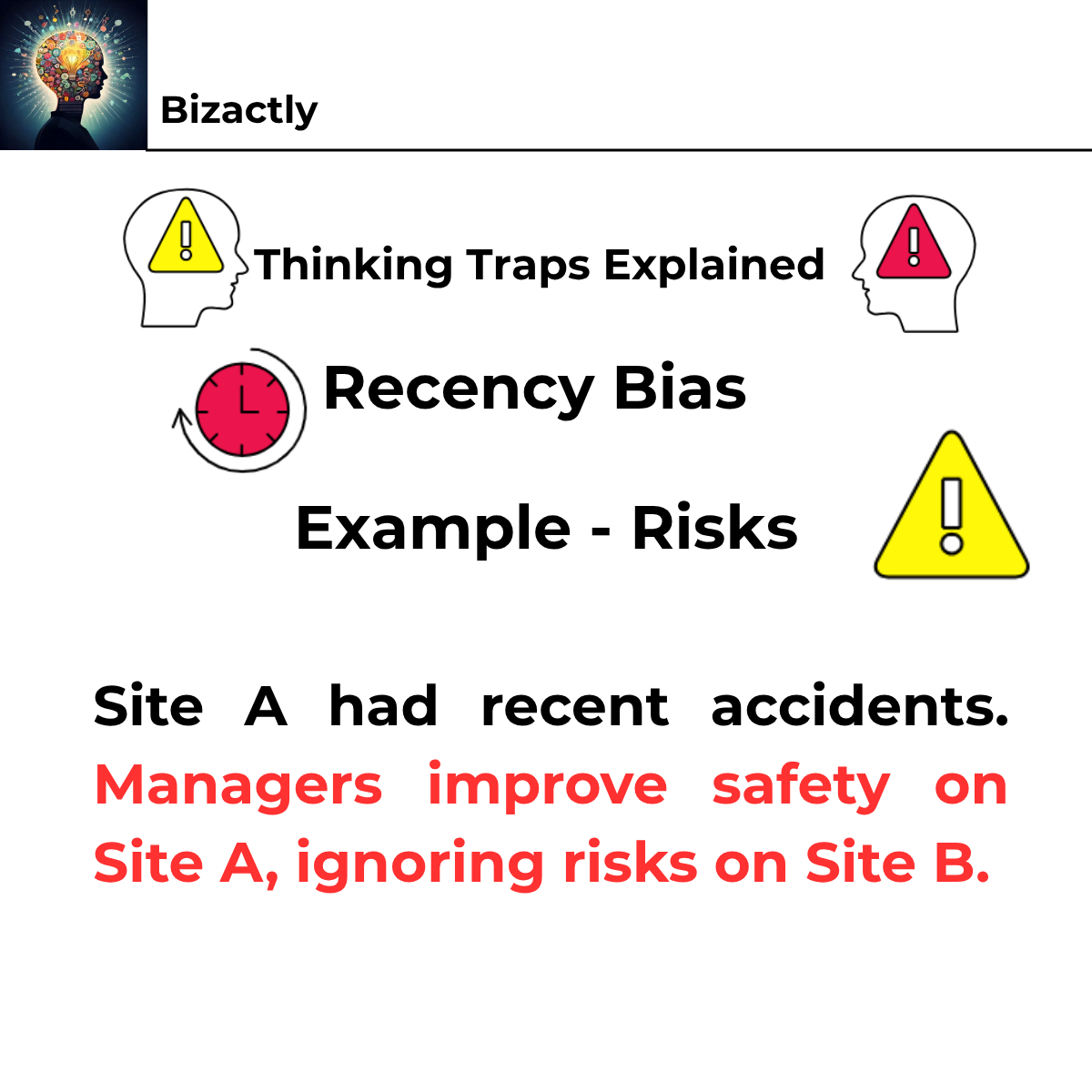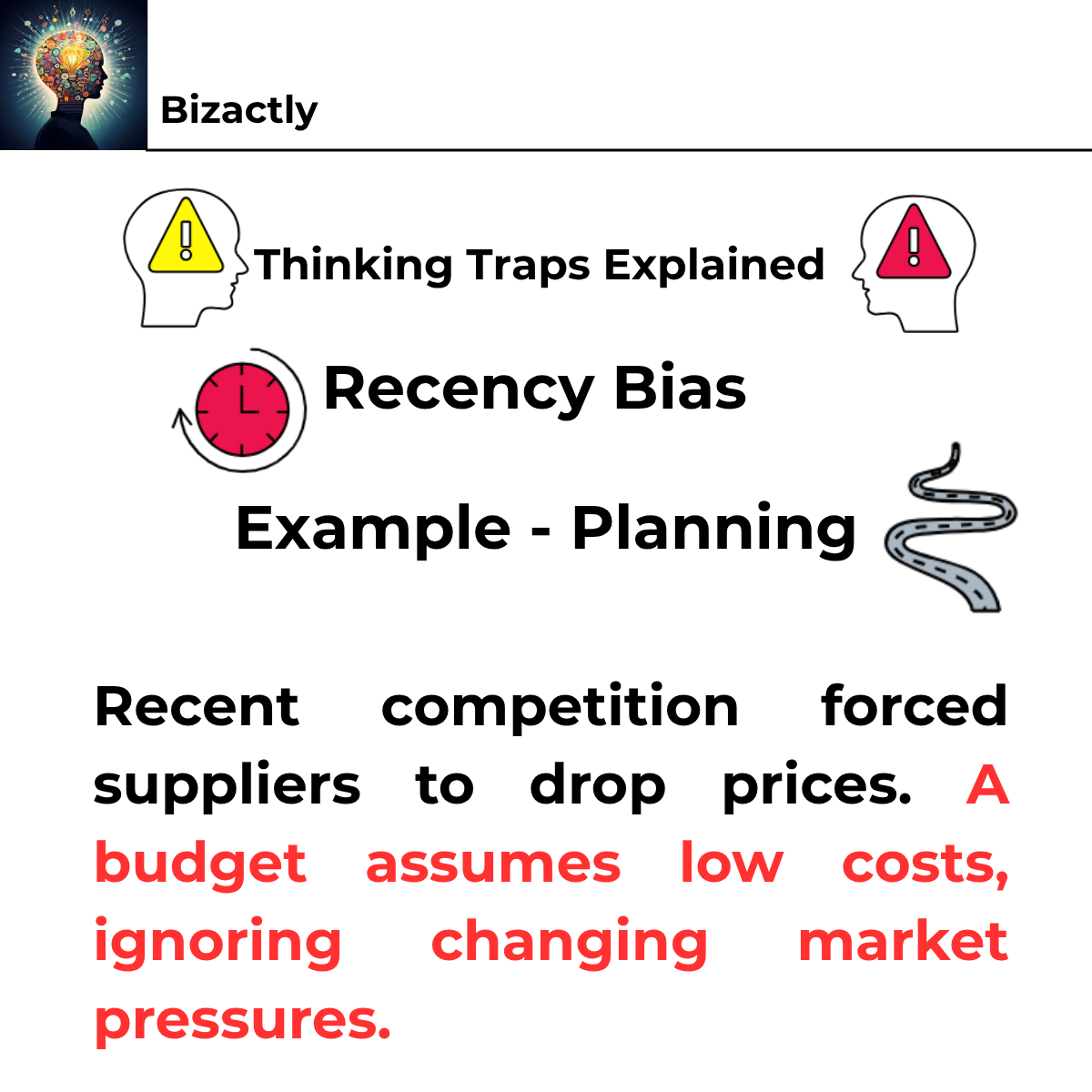Being humans, we often fool ourselves, both in business and in our personal lives. If we are aware of thinking traps, we are less likely to fall into them.
One thinking trap is the "Recency Bias".
Recency Bias - Definition
We overvalue recent events or data, ignoring other important data or past events.
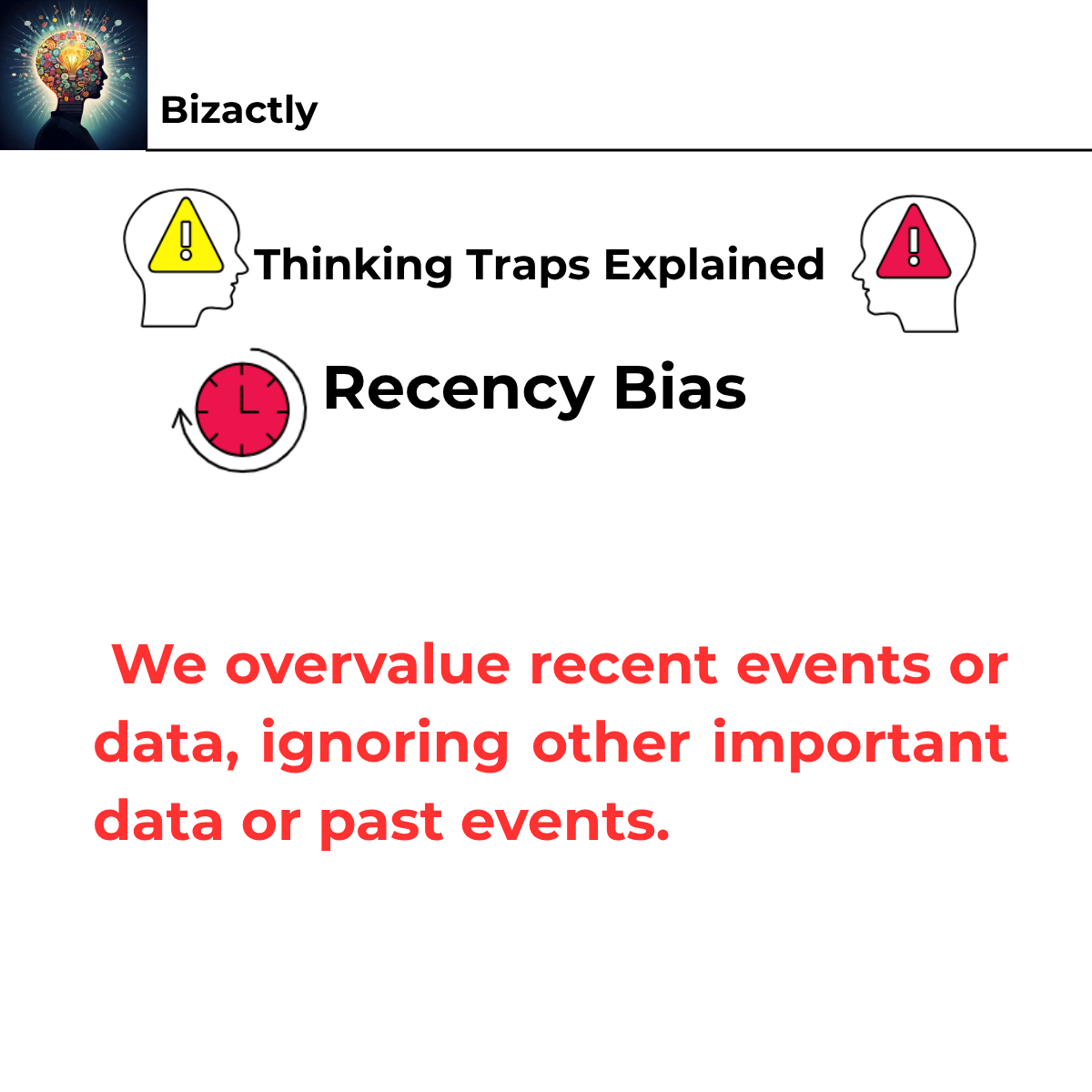
Recency Bias - Examples
📢 1. Marketing: Marketers can overinvest in channels that recently produced a viral success. For example, after a TikTok campaign goes viral, a company might shift most of its ad budget there, ignoring long-term ROI data from other, more stable channels.
🧯 2. Risk Perception After an Incident: After a safety incident, managers improve safety on Site A, ignoring similar risks on Site B.
💹 3. Investment Decisions: Investors pour money into sectors that recently performed well (e.g., tech or AI stocks). This fuels bubbles as people assume recent trends represent future performance.
📈 4. Strategic Planning: Leaders overemphasize recent events, such as assuming current low costs will continue, leading inaccurate forecasts.
